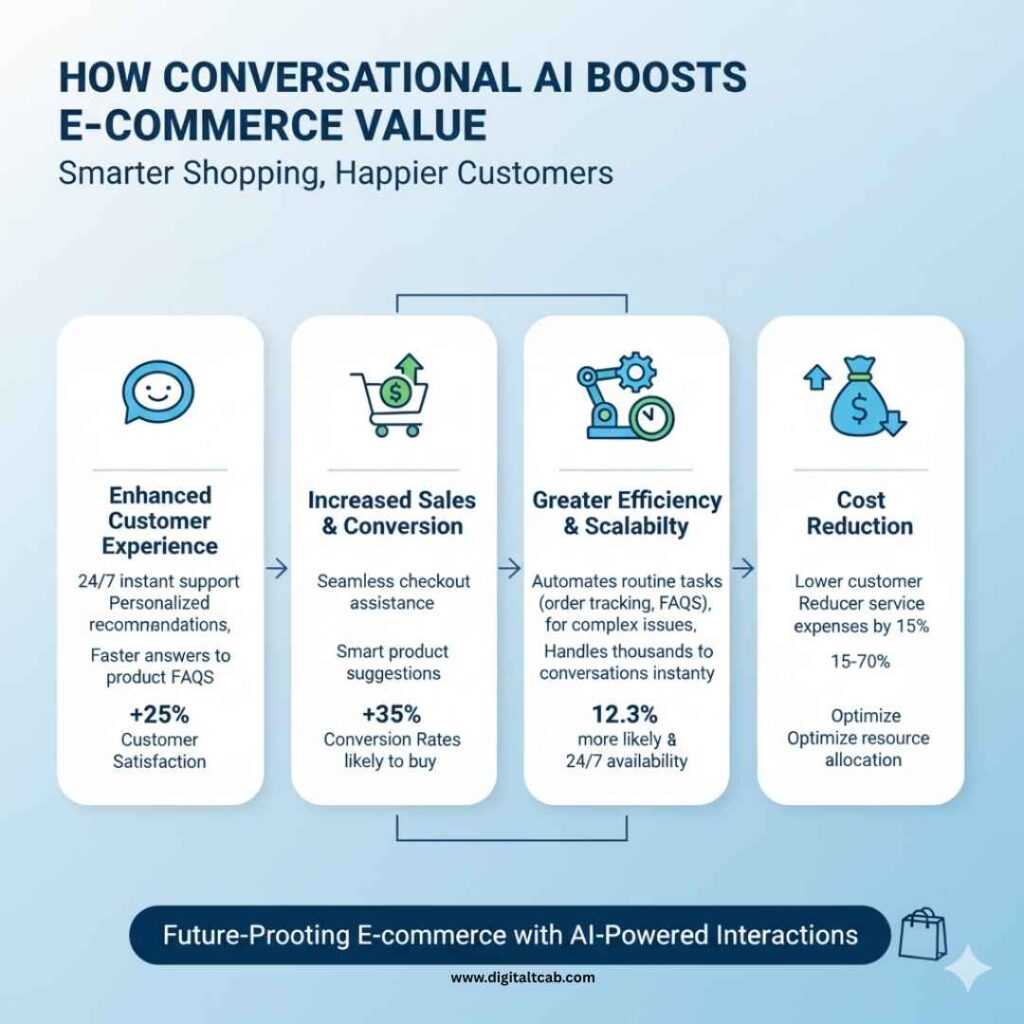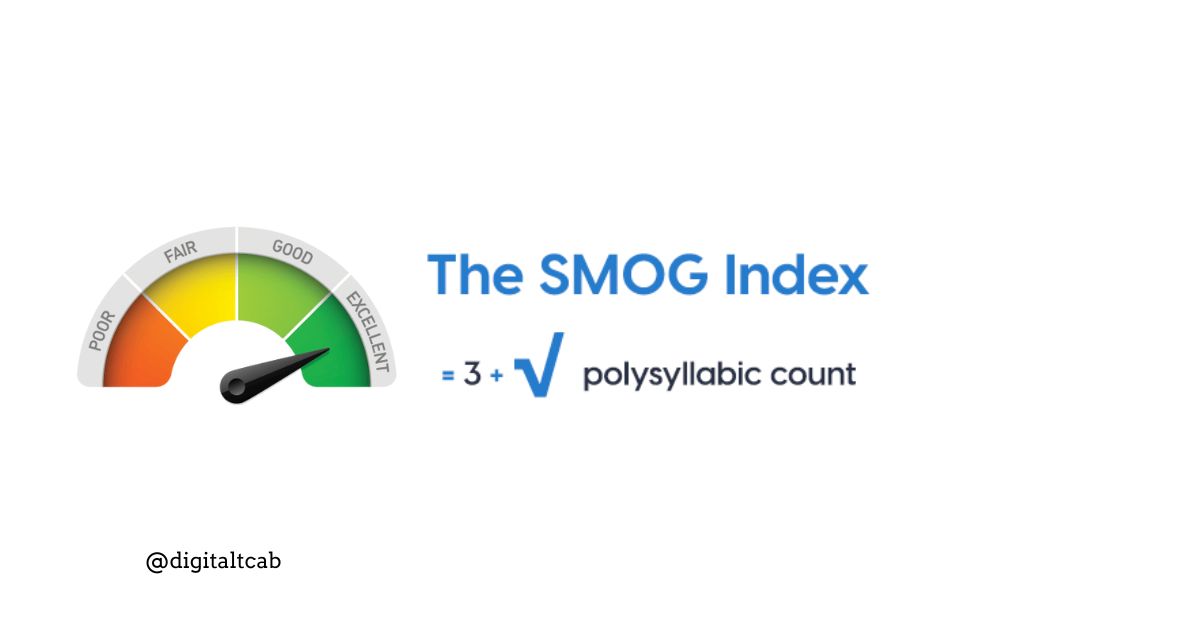The New Frontier of E-commerce Engagement
In the rapidly changing digital market, the key to success lies in turning a looker into a buyer. It has changed the idea of online shopping from merely passive to interactive. Conversational AI is converting web space into dynamic space, affecting how brands communicate with customers and, most importantly, how they sell their goods.
The Changing Face of Online Retail
In today’s world, consumers want more than just a simple, static website. They demand convenience and immediate responses to their individual needs. The days when navigation was surrounded by confusion and services were slow are long gone. E-commerce has moved from a mere list of things to look at or think about to an interaction that must be led. Through real-time data response technology, brands can now respond to customer needs almost on the spot.
What is Conversational AI in E-commerce?
Conversational AI is more than a mere chatbot. It takes in a range of tools based on machine learning and Natural Language Processing. These systems can have human-like conversations with the users. They understand what the user wants, can predict their needs, and learn from each interaction they engage in. It’s not just a matter of providing answers, but guiding the customer journey.
Why Conversational AI is Necessary for Sales and Customer Experience
In today’s competitive market, Chatbot Technology is a must. Customer is king, and immediate, personalized, 24/7 service is what they need. The technology improves customer satisfaction and conversion rates, from settlement to final product, making operations much smoother–with the result being higher sales and profitability.
How Conversational AI Creates Increased Value in E-commerce
Virtual Assistants creates real value. By being responsive and providing intuitive services, it enhances the customer experience. This increases participation and sales as well as satisfaction for customers.
Better Customer Experiences and Higher Satisfaction
Helping shops give great customer service. Automated Conversations extends your service hours from 9 am to 9 pm and provides immediate help. It leaps instantly over critical business hurdles with minimum delay: it answers product model links, and it provides services.
By over 25%, AI-driven personalization can transform customer satisfaction; it can even make buyers into fans of your brand.

Increased Sales and Conversion Rates
Sales can be directly affected by Automated Messaging Systems. Closing the deal is the key moment to make a deal easy. It recommends better alternatives than those previously existing; It solves problems with products such as new releases of software in detail and makes their usage simple step by step. Companies with AI chat assistants have seen up to a 35 % increase in conversion rates as well. Customers who engage in AI-powered chats while shopping are 12.3% more likely to buy.
Greater Efficiency and Scalability
AI automates functions such as order tracking and answering common questions. This frees up human agents to tackle more difficult problems and customers with more deeply troubled or complex issues. AI never goes to sleep. It can handle tens of thousands of conversations every second, 24 hours a day, seven days a week. This leads response times to be quicker, customer service costs to drop by anywhere from 15 to 70 %, and allows resources to be put toward growth.
Making Personalization a Reality through Machine Learning
The core of AI Chat Solutions is machine learning. By analyzing customer data—like browsing history and previous purchases—AI delivers personalized suggestions. A level of service this high makes the customers feel appreciated, leading to loyalty and conversions.
Strategies for AI-Driven Conversations Across the Customer Journey
To get the most benefit out of AI-driven conversations, use them at every stage of the customer journey.
Discovery and Consideration before Purchasing: Discovery and Consideration
Virtual Assistants helps customers find products at this stage and makes it possible for them to determine at least two facts about their meeting to impact its quality. For example, when someone says, “I want good quality sports shoes that are red and cost less than $100,” conversational AI matches the product directly. AI also supports visual search, where customers upload a photograph to bring up similar products.
At time of purchase: Conversion and Checkout
When a customer is near making a purchase, AI can help to reduce cart abandonment. It can offer a discount or answer any last-minute questions. It can also guide the customer.Through checkout, making the process smooth and easy.
After purchase: Assistance and Loyalty
But buying something is not the end of the line. With ongoing support, AI can help track orders, returns, and warranty inquiries. This kind of value-added support helps establish trust and loyalty among repeat customers.
Advanced Strategies for Sales & CX Differentiation with Conversational AI
Virtual Communication Agents uses high-level strategies to gain the best possible sales outcomes and customer loyalty.
Hyper-Personalization
By analyzing real-time customer behavior, AI can provide a customized promotion and product bundle. This increases the likelihood of conversion, since offers are more relevant to the customer.
Voice Commerce
By integrating AI with voice assistants provided by Amazon Alexa, shopping becomes a hands-free activity. Customers can reorder products, query their order statuses, and look through new items simply by talking to an electronic device.
Actionable Insights from Conversational Data
Every interaction with AI provides valuable data. By analyzing these conversations, businesses can discover trends and pain points, learn what makes people buy. These insights can shape product development and marketing strategies.
Implementing Conversational AI: A Strategic Framework for Success
To succeed at implementing AI Chat Solutions, businesses need a clear strategy.
Define Clear Objectives and KPIs
Before you start, determine what success looks like. Are you trying to increase conversions, reduce cart abandonment, or improve customer satisfaction? Set up measurable KPIs to track how well your efforts are doing.
Choose the Right Platform
Different Intelligent Chatbots platforms have different capabilities. Choose one that aligns with your goals, integrates well into your e-commerce system, and works for your business in scaling up.
Crafting Conversations That Are Intuitive and On-Brand
The AI should reflect your brand’s tone, language, and style. It should feel natural to talk with, moving people toward what they want in life and the sorts of places they need to go.
Training, Testing, and Continuous Optimization of AI
Training can help AI get better. To train it, start with FAQs and customer data; testing; real conversations compared to those which had come before it, before continuing this process for the rest of one’s life.
Challenges and Best Practices of Conversational AI Implementation
As Chatbot Technology is deployed, businesses need to deal with issues such as data privacy and system integration. Best practices include being open about the fact that AI is being used, making sure there are clear routes for human help when it’s needed, and ensuring that the customer experience only gets better.
The Future of E-commerce: Conversational AI’s Role
Conversational AI is not just a tool–it’s the bedrock upon which tomorrow’s e-commerce rests. Businesses that seize AI-driven engagement will have a leg up on their competitors.
Conversational Commerce
The ultimate goal is conversational commerce, where customers control all steps of their shopping trip through natural conversations with AI. This makes buying as easy as chatting with a shop assistant.
Being Ahead of Customer Expectations in a Market That Centers on Customers
For example, businesses that adopt conversational AI themselves may be better equipped to meet such rising consumer expectations. In 2025, e-commerce transactions through chatbots are expected to hit $142 billion, showing that AI chat is poised to play a big role in retail.
Conclusion: Let Conversational AI Reshape Your E-commerce
Conversational AI has become a key driver of success for e-commerce businesses. It enhances the customer experience, increases sales, and improves operational efficiency. By incorporating AI-enabled digital assistants, businesses will be able to offer richer and more personal shopping experiences that are also more effective, which in turn fosters greater customer loyalty and more sales.
FAQs: Conversational AI in E-commerce
What is Conversational AI in e-commerce?
AI-Powered Chatbots in E-Commerce refers to the use of AI-powered tools like chatbots and virtual assistants to engage with customers in real-time. It helps automate customer service, provide personalized shopping experiences, answer inquiries, recommend products, and assist with purchases, enhancing user satisfaction and driving sales.
What is the future of Conversational AI in e-commerce?
That future is conversational commerce, when retailers and customers complete the whole shopping experience through conversations with AI. This will provide a frictionless, intuitive shopping experience for people.





Leave a Reply